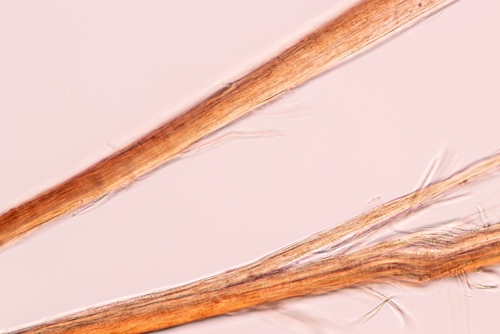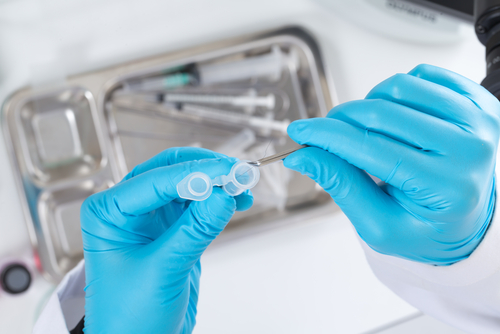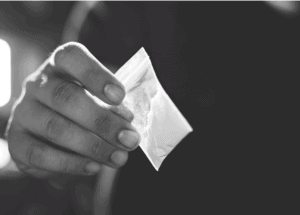Hair analysis is an intriguing way to test for drugs like cocaine and provides better results compared to other testing methods like urine or blood tests. So, what makes it stand out? Let’s take a look.
How Does Hair Analysis Detect Cocaine?
Your hair tells a story beyond your style choices. When you use cocaine, it enters your bloodstream. As your hair grows, it absorbs these drug traces from the blood, trapping them in your hair strands. Imagine your hair as a timeline: a small sample, usually taken from near the scalp, can reveal if cocaine was used in the last three months.
Read more: What Does Cocaine Smell Like?

Why Is Hair Analysis So Popular to Detect Cocaine?
Here are a few reasons why hair analysis is a go-to method for cocaine detection:
- Lasts Longer: Cocaine traces stick around in your hair way longer than in your urine or blood.
- Low-Key Procedure: It’s way less invasive than getting blood drawn.
- Hard to Fake: It’s tough to mess with hair samples, unlike, say, urine samples.
- Tells a Longer Story: Need to know about drug use over a few months? Hair analysis has the answers.
Other Testing Methods for Cocaine Use
- Urine Tests: Great for recent drug use, usually within the last few days.
- Blood Tests: They show drug use from a couple of hours to a few days back.
- Saliva Tests: Handy for spotting very recent drug use.
Each test has its place, depending on what you need to find out and how quickly you need the information.
How Long Does Cocaine Stay in Your Hair?
Cocaine can be detectable in your hair for up to 90 days. But several factors can change this:
- Growth Rate: Since hair grows about half an inch a month, longer hair might show drug use from even further back.
- How Much and How Often: Heavy users might find cocaine hangs around in their hair for longer.
- Hair Color: Dark hair could hold onto drug traces for more time.
- Chemical Treatments: If you often dye or bleach your hair, it could affect the test results.
- Outside Factors: Sometimes, smoke from crack cocaine can stick to hair follicles and produce a positive test result.
Hair analyses, or hair drug tests, are a reliable way to get the bigger picture of someone’s drug use. But it’s important to remember these factors to ensure you’re reading the story right. Getting the full, accurate picture is super important in situations like recovery or legal cases.

How Accurate Is Hair Drug Testing for Cocaine?
Hair analysis is generally reliable for detecting cocaine use over an extended period. However, its precision can be influenced by external factors. For instance, environmental pollutants or cocaine exposure in one’s surroundings could potentially lead to false positives. Additionally, individual variations in hair growth rates can affect the detection timeline. As we mentioned earlier, chemical alterations to hair, like dyeing or perming, might also impact test results, and the rate at which different individuals’ hair incorporates drugs can vary, leading to inconsistencies.
Despite these potential variabilities, hair testing is widely accepted as a dependable method for tracking long-term cocaine use, particularly because of its extended detection window compared to other methods like urine or blood tests.
What Does a Positive Cocaine Hair Test Mean?
A positive hair test for cocaine can have far-reaching implications across various aspects of one’s life. Legally, such a result could lead to criminal charges or complicate legal proceedings, such as custody battles or workplace investigations. Professionally, it might result in job termination or create barriers to future employment opportunities — it depends on the employer’s policies or the nature of the job.
On a personal level, the consequences can be equally significant. Relationships may be strained, and social standing could suffer. The stigma attached to a positive drug test can alter one’s personal interactions and social dynamics, which makes it important for individuals undergoing hair testing to understand the potential impact of the results.
Asheville Detox Center’s Role in Recovery
At Asheville Detox Center, we recognize that overcoming addiction is a complex journey. Our team is devoted to providing care that touches not only on the physical challenges of cocaine addiction but also its emotional and psychological aspects. We believe in a treatment approach that looks at the whole person, not just their addiction.
Personalized Detox and Treatment Programs
Our medical detox program is the first step in the recovery process. This phase is essential for managing withdrawal symptoms safely and preparing for the recovery journey. We guarantee a secure and supportive setting for detox, complete with round-the-clock clinical supervision.
After detox, we shift our focus to aftercare preparation and medication-assisted treatment (MAT), designed to support long-term recovery. We understand that each individual’s journey is unique, so we tailor our treatment plans to meet their needs. We aim to provide the necessary tools and support for lasting recovery and a return to a healthy, fulfilling life.
Read more: Cocaine Detox: Importance, Process, & 5 Support Systems
A Guide Through Recovery
Understanding the answer to the question “How long does cocaine stay in your hair?” and learning about the detection of cocaine in hair and its consequences is important, but it’s just one aspect of a larger journey. At Asheville Detox Center, we support you every step of the way. Whether you’re grappling with cocaine addiction or just looking for more information, we invite you to reach out. Discover the range of addiction services we offer and take the first step towards a new chapter in your life.
[aio_schema]







